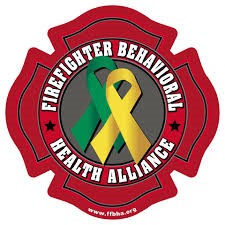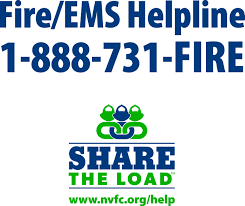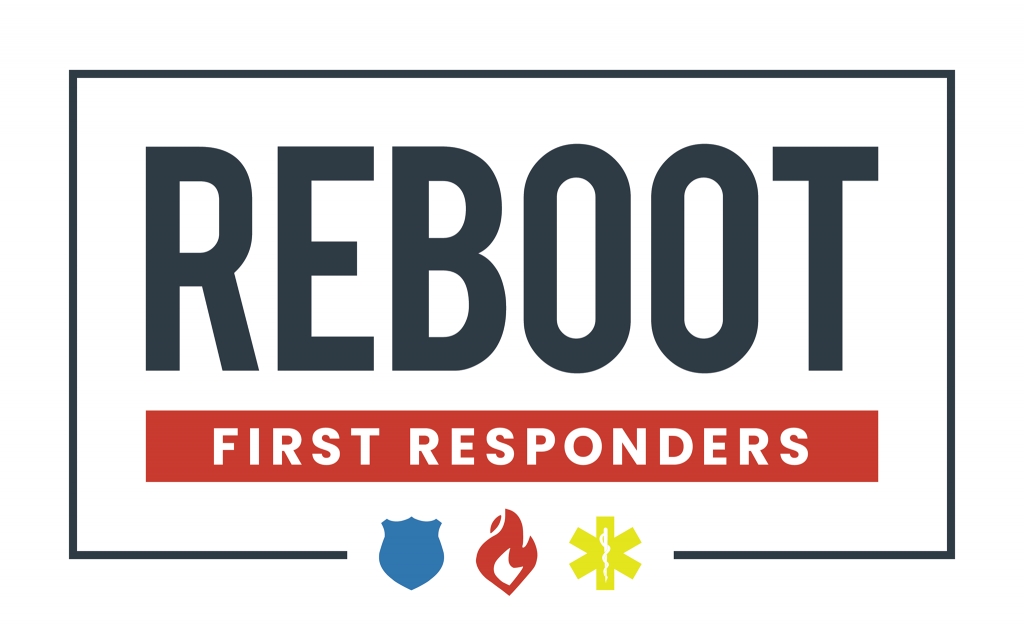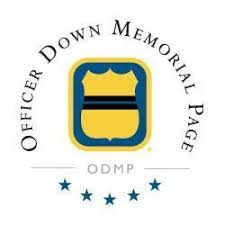
The Cost of Suicide
You, dear children, are from God and have overcome them, because the one who is in you is greater than the one who is in the world. 1 John 4:4
Suicide is a serious public health concern that will have long-lasting effects on individuals, families, and communities. Being defined as ‘the act of intentionally killing oneself,’ nearly all suicides result from terrible mental illness. According to the Centers for Disease Control, suicide is the 11th leading cause of death for all ages in the United States.[1] Additionally, the age-adjusted suicide rate in the United States increased from 10.5 suicides per 100,000 to 14.2 suicides, a 35% increase over the previous 20 years. This increase can be attributed to a worsening mental health crisis in the country. [2] From 2000 to 2021, there was an almost 36% increase in the suicide rate. Suicide took 48,183 lives in 2021, or one person every 11 minutes.
In 2018, the United States witnessed a staggering 48,344 reported suicides, a record high. However, the following years brought a glimmer of hope as the suicide rate decreased to 13.5 per 100,000, according to the CDC. Yet, the pandemic’s impact was undeniable, with suicides surging to 14.0 per 100K in 2021, underscoring the unpredictable and volatile nature of this issue.
Between 2015 and 2020, the annual economic cost of suicide averaged a staggering $484 billion. This astronomical figure is a direct result of the substantial loss of life years caused by suicide, highlighting the tangible and significant impact of this issue on our society. [3] Obviously, lives are more valuable than money, and understanding the financial implications can help determine how much a person’s death impacts society.
Police officers, firefighters, emergency medical technicians (EMTs), and public safety communicators are essential in ensuring the public’s safety and health. Due to the conditions in which they work, their culture, and stress on both a personal and professional level, first responders may be at higher risk of suicide.[4] Sadly, suicide is the number 1 killer of cops and firefighters.
Suicide is a permanent solution to a temporary problem that causes a ripple effect, taking an enormous toll on individuals, families, and communities. Family and friends experience shock, anger, guilt, and depression. Being a survivor of a loved one who committed suicide increases that person’s risk of having suicidal thoughts.
In a 2018 study by the National Center for Biotechnology Information, it is estimated that 115 people are exposed to a single suicide, and one out of five people, known as “suicide loss survivors,” report that the suicide incident had a devastating impact or caused a significant life disruption.[5] A suicide loss survivor (SLS) is defined as “someone who experiences a high level of self-perceived psychological, physical, and/or social distress for a considerable length of time after exposure to the suicide of another person.”[6]
The death of a loved one is painful, whether it be sudden or after a long illness. However, death by suicide is different, making the grieving process more difficult. A suicide death is sudden, many times violent, and typically unexpected.
Because of the stigma, shame, and isolation associated with suicide, suicide loss survivors often isolate themselves from other family members and their community. Because of the guilt, they may conceal evidence that a suicide occurred, making the death appear to be accidental or due to illness. Family members may refuse to talk about death, many times keeping the details a secret, leading to even more confusion, isolation, and shame that can last for generations. Many family members often feel cut off after suicide. It’s important to remember that resources, such as professional therapists and support groups, can provide the necessary support and understanding during this difficult time.
After a suicide, it’s normal to experience intense and challenging emotions such as rejection, anger, and a sense of abandonment. The ‘need for a reason’ often arises, leading the bereaved to question their actions and ponder ‘what if’ scenarios. These feelings are a natural part of the grieving process and should be acknowledged and understood.
Research by many organizations has shown that adults who have lost friends or family members to suicide are more likely than the general population to attempt suicide.[7] Unless adequately treated, these feelings will grow more intense.
Numerous studies have shown that children exposed to parental suicide were three times more likely to die by suicide and two times more prone to attempt suicide than the children of two living parents[8] and at a greater risk of self-harm and participation in violent crime.
Many suicide loss survivors may respond with denial, acting as if everything is ok when it is not. As part of human nature, there is a great desire to pinpoint why the incident occurred. Suicide loss survivors may place blame on others even though the fault is not warranted. Anger is a typical response, demanding an explanation from God and being angry at others. It’s crucial to deal with anger positively and constructively to get away from its negativity.
Some coping strategies that can help include seeking professional help, joining support groups, engaging in self-care activities, and practicing mindfulness.
 In times of loss and grief, humankind has often turned to religious or spiritual beliefs and practices to find a framework, a way of dealing with or incorporating death, or constructing meanings for death and the world as people in ordinary or difficult times experience it.[9] Despite growing secularism in some parts of the world, spirituality, and religion are still elements of the cultural and sociological worldview of many societies, particularly when it comes to life and death. This is especially the case where death is tragic and violent.[10]
In times of loss and grief, humankind has often turned to religious or spiritual beliefs and practices to find a framework, a way of dealing with or incorporating death, or constructing meanings for death and the world as people in ordinary or difficult times experience it.[9] Despite growing secularism in some parts of the world, spirituality, and religion are still elements of the cultural and sociological worldview of many societies, particularly when it comes to life and death. This is especially the case where death is tragic and violent.[10]
Suicide is a sad and very tragic existence in our broken and fallen world. The thought that people can become so desperate that taking their own life is an option is distressing. Many people living in the United States, whether influenced by our Judeo-Christian values or by their convictions, denounce the act of suicide. Beliefs that suicide is the ultimate sin, that God condemns suicide, or that by committing suicide, you cannot gain or you will lose your salvation are not valid. Many believe that committing suicide is a one-way ticket to HELL. Yet, the Bible offers hope to those who are thinking about taking their own lives as well as to those who have been affected by the suicide of another person.
In Christ, in faith, there is hope. The Bible tells us that we are not alone and of those who struggle with suicidal ideation; Scripture reminds us of the hope and promises of God.
The Bible tells us of others who’ve experienced extreme desperation. 1 Kings 19:4 tells us the Prophet Elijah was tired, depressed, and afraid and prayed for death. Jonah 4:8 explains how Jonah’s anger with God led him to suicidal ideation. King Solomon, son of David, grew weary of chasing the pleasures of life and began to “hate life” (Ecclesiastes 2:17), and the Apostle Paul and his missionary team “were under great pressure, far beyond our ability to endure, so that we despaired of life itself” (2 Corinthians 1:8).
But God sent Elijah an angel, comforting him and allowing him to rest and rejuvenate his mind and body. God rebuked and warned Jonah about Jonah’s anger with God. Solomon learned to fear God and keep commandments (Ecclesiastes 12:13). As Paul’s faith grew, he learned to rely on God and not himself (2 Corinthians 1:9).
In 2 Corinthians 1:3–5, the Apostle Paul writes, “3 All praise to God, the Father of our Lord Jesus Christ. God is our merciful Father and the source of all comfort. 4 He comforts us in all our troubles so that we can comfort others. When they are troubled, we will be able to give them the same comfort God has given us. 5 For the more we suffer for Christ, the more God will shower us with his comfort through Christ.”
While many will contend that suicide is a sin, self-murder equals murder; nowhere in God’s word is suicide condemned or signified that it is an unforgivable sin. God’s word is evident that the ONLY sin that cannot be forgiven is the refusal to believe in Jesus Christ.
“Hope has the last word, not suicide, not cancer, not depression, not even death. When that hopeless thought comes knocking on the door, reject it.” “We can have times of depression, we can have times when we’re sad, and it doesn’t mean our faith is gone, and it doesn’t mean that we’re failures as believers. It means that we’re hopelessly human, and we constantly need Christ.” (Pastor Greg Laurie)
As First Responders, we swore to protect good and fight evil. Many have lost track of their priorities and have put the job first in their lives. If you are experiencing a lower than usual sense of self-worth, depression or misplaced guilt, inability to remember or talk about the trauma specifically, feeling numb emotionally, dissociation (not aware of the present moment), or a feeling of disconnection from your everyday lives, feeling hyper-aroused and vigilant for danger all the time, lashing out in irritability or unexplained anger, feeling jittery, or unable to concentrate on tasks at hand or other anxiety disorders, such as panic or intense distress, talk to someone and get help. Get back to the basics. Put God First, Family Second, and the job further down in the order.
YOU HAVE THOUGHTS OF SUICIDE – GET HELP NOW
Law Enforcement – COPLINE (800)COPLINE (267-5463)
Firefighters / Medics – FIRE/EMS HELPLINE (800) 731-FIRE (3473)
- Hedegaard, Holly and Curtin, Sally C. and Warner, Margaret, 1965- ‘Increase in suicide mortality in the United States, 1999–2018’, published in the American Journal of Preventive Medicine, no. 362 (2020) ↑
- Peterson, Cora, et al. “Economic Cost of U.S. Suicide and Nonfatal Self-Harm.” Economic Cost of U.S. Suicide and Nonfatal Self-Harm, American Journal of Preventive Medicine, 11 Mar. 2024, www.ajpmonline.org/article/S0749-3797(24)00081-3/fulltext. ↑
- ibid ↑
- SAMHSA. “First Responders: Behavioral Health Concerns, Emergency …” First Responders: Behavioral Health Concerns, Emergency Response, and Trauma, May 2018, www.samhsa.gov/sites/default/files/dtac/supplementalresearchbulletin-firstresponders-may2018.pdf. ↑
- Cerel J, Maple M, van de Venne J, Moore M, Flaherty C, Brown M. Exposure to Suicide in the Community: Prevalence and Correlates in One U.S. State. Public Health Rep. 2016 Jan-Feb;131(1):100-7. doi: 10.1177/003335491613100116. PMID: 26843675; PMCID: PMC4716477. ↑
- Jordan, John R., and Vanessa McGann. 2017. Clinical work with suicide loss survivors: Implications of The U.S. postvention guidelines. Death Studies 41: 659–72. ↑
- Pitman AL, Osborn DP, Rantell K, King MB. Bereavement by suicide as a risk factor for suicide attempt: a cross-sectional national UK-wide study of 3432 young bereaved adults. BMJ Open. 2016;6(1):e009948. ↑
- Calderaro M, Baethge C, Bermpohl F, Gutwinski S, Schouler-Ocak M, Henssler J. Offspring’s risk for suicidal behaviour in relation to parental death by suicide: systematic review and meta-analysis and a model for familial transmission of suicide. The British Journal of Psychiatry. 2022;220(3):121-129. doi:10.1192/bjp.2021.158 ↑
- Holloway, Margaret, and Bernard Moss. 2010. Spirituality and Social Work, 1st ed. London: Palgrave and Macmilan,
ISBN 978-0-230-21924-3. ↑
- Burke, Laurie A., Robert A. Neimeyer, Meghan E. McDevitt-Murphy, Maria R. Ippolito, and J. Matthew Roberts.
2011. Faith in the Wake of Homicide: Religious Coping and Bereavement Distress in an African American
Sample. International Journal for the Psychology of Religion 21: 289–307. ↑











Spot on, thanks Danny for all you do helping all to be more knowledgeable and able to help others who face depression and suicidal ideation.